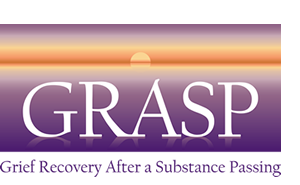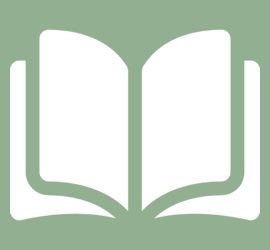Book Recommendations on Grief Recovery
Icons made by Freepik from www.flaticon.com is licensed by CC 3.0 BY
Anyone who has lost a loved one through drugs knows that society treats that death in a much different manner than a death from any other cause. There is the unspoken feeling that the individual who died from substance use must have somehow been less than a good person. And for the person who has survived, surely they too must have somehow been a failure, for “letting this occur.” Why were they not strong enough to stop this from happening? You were, they feel, in whatever way, partially a factor in the demise of the person you grieve.
And anyone who has gone through the anguish of losing a loved one through drugs knows the feeling. Just the loss of that person is devastating enough. But coupled with friends and associates who, try as they might not to, look at you in a different way and, you’re sure, thinking less of you for what happened, make it nearly impossible to cope. Above all, they do not want to discuss it with you, feeling inadequate to really comprehend what you’re going through.
But where to turn? Society has grieving groups for when a child has died from illness, accident, suicide or even murder. They have similar groups for those whose family member “- parent, sibling, spouse or partner,” has passed on through other diseases or accident. But, oddly, there is little help available for those who have lost that special person through a misuse of drugs.
GRASP was created to offer a single source to people in this specific group, those who have lost a child, parent, spouse, partner or sibling through drugs. GRASP offers resources of many types. You’re invited to explore our menu. Somewhere you will find a thought, a page, a suggestion, book or a direction, to help give you encouragement and a path in the days ahead.
Main Selection
When A Child Dies From Drugs
By: Pat and Russ Wittberger
Practical help for parents to survive their uniquely tragic experience.This book provides strength, meaningful advice, and an aid in grief recovery.
How to get your copy.
Losing Jonathan
A condensed version of the first part of this book appeared in the Boston Globe Magazine on Father’s Day in 2000. The book, entitled Losing Jonathan , runs about 56,000 words. It is divided into two groups of short sections: the first series of sections explore the year before our son Jonathan’s death, his battle against heroin addiction, and the close bond between parent and child. The second series then traces the curve of parental grief over the next six years, reflecting on the turbulent struggle of such experience,with particular emphasis on the difference between the interior journey of a father and a mother, husband and wife.
How to get your copy.
More about the book. or www.bn.com
Living When a Loved One Has Died
By Earl A. Grollman.
(One book which we found helpful and have since given out to others is)
For children, especially siblings, this whole grieving process can not only be hurtful but confusing and even frightening. Often death is puzzling for them, and they wonder where they now fit within the sadness of parents. Included in the list are some books for the 6-10 year olds to help them understand, and encourage them to ask questions.
How to get your copy.
Badger’s Parting Gifts
By Susan Varley
I Miss You
By Pat Thomas
How to get your copy.
When Someone Very Special Dies
By Marge Heegaard
Two very special books which were primarily written for and are published as juvenile literature must be recommended since the response to them by adults has been most enthusiastic – not only because of content, but illustrations.
How to get your copy.
The Next Place
by Warren Hanson
It is so beautifully conceived by the author/illustrator that the reader or listener cannot help but be inspired and comforted.
How to get your copy.
Tear Soup
By Pat Schwiebert and Chuck DeKlyern. Illustrated by Taylor Bulls
It is as the co-title suggests “a recipe for healing after a loss” and to quote the jacket flap, “affirms the bereaved, educates the un bereaved and is a building block for children.”
How to get your copy.
I Am Your Disease
By Sheryl Letzgus Mc.Ginnis
This book is a compilation of real lives, true stories of addictions supplied by the families involved.
How to get your copy.
Symptoms of Withdrawal
By Christopher Kennedy Lawford A memoir of his addictions and recovery.
How to get your copy.
Life Between Falls
By Julie Lange
A Travelogue Through Grief and the Unexpected. One mother’s journey through her son’s death. A must read.
How to get your copy.
My Daughter’s Addiction : A Thief in the Family – Hardwired for Heroin
By Marie Minnich including a chapter by her daughter Mary
A gripping and compelling story of one mother’s journey raising her heroin addicted daughter. The autobiographical story also chronicles the murder of the author’s mother in 1968; the Youth Culture of the 60’s, the author’s experience as a battered wife and consequent escape, and the devastating effects of that marriage and personal history on her adult daughter, a “Junkie”
How to get your copy.
Healing After Loss: Daily Meditations for Working Through Grief
By Martha Whitmore Hickman
How to get your copy.
Editor’s Choices
Living When a Loved One Has Died
By Earl A. Grollman.
(One book which we found helpful and have since given out to others is)
For children, especially siblings, this whole grieving process can not only be hurtful but confusing and even frightening. Often death is puzzling for them, and they wonder where they now fit within the sadness of parents. Included in the list are some books for the 6-10 year olds to help them understand, and encourage them to ask questions.
How to get your copy.
When Someone Very Special Dies
By Marge Heegaard
Two very special books which were primarily written for and are published as juvenile literature must be recommended since the response to them by adults has been most enthusiastic – not only because of content, but illustrations.
How to get your copy.


